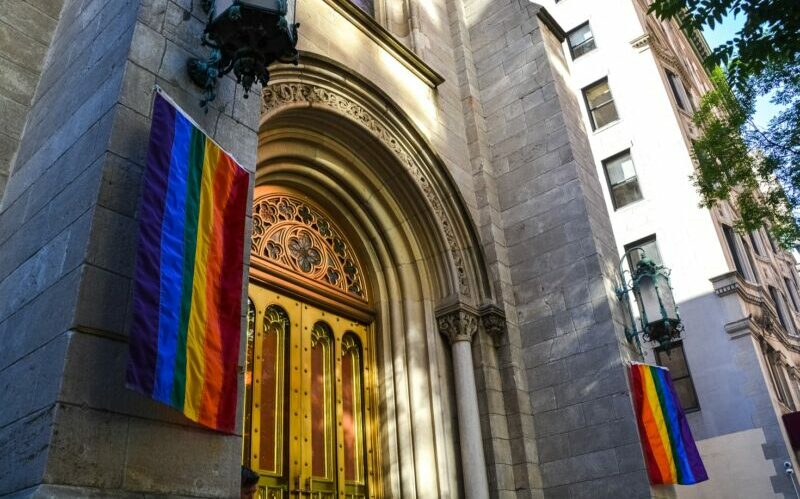Discrimination even by bishops is contrary to the message of Jesus
February 5, 2022
Catholic bishops are misguided in their insistence on being legally permitted to discriminate against individuals to protect the “ethos” of their schools.
In his ministry among the people of Judaea, Samaria and Galilee, Jesus had a single vision and inspiration the kingdom of God, of which he spoke incessantly. Moreover, he instructed his disciples to pray for its growing presence in the world: Our Father may your kingdom come and your will be done on earth (Matthew 6:10).
Making the kingdom a reality is an evolutionary process. It involves God and people working in partnership to free the world from the powers that enslave humanity, and to transform it into a world where there is justice and peace, unity and happiness, fullness and plenty, joy, and an end to suffering (Matthew 5:2-10).
Jesus primary mission was among the poor, the sick, the lepers, the sex workers, the tax collectors, the downtrodden and marginalised, and even the Samaritans. He spent little time among the regular attendees at the temple and local synagogues and had few good things to say about their leaders. In his eyes the Scribes and Pharisees were “hypocrites”, “blind guides”, “serpents” and “whitewashed tombs” (Matthew 23:2-36). When they saw him eating with tax collectors and sinners they were irate (Luke 15:2), for their expectation was that he should discriminate against such people. The Pharisees did not understand that the Law of Moses was meant to lead people to love God and their neighbour. Hence Jesus tells the crowds that if your virtue goes no deeper than that of the Scribes and Pharisees, you will never get into the kingdom of heaven (Matthew 5:20).
Discrimination of any kind had no place in the kingdom preached by Jesus. His message was love one another and treat others as you would like them to treat you (Luke 6:31).
Vatican II, in its_Pastoral Constitution ofThe Church in the Modern World_, was blunter: Discrimination is contrary to Gods will. Every type of discrimination, whether social or cultural, whether based on sex, race, colour, social condition, language, or religious must be overcome and eradicated (Gaudium et Spes, 29).
Discrimination legislation
To discriminate against any person for any reason is to offend against their fundamental human rights. There is no “Good News” in discrimination. It is alien to the kingdom of God. Archbishop Desmond Tutu, once asked whether he was working for the kingdom of God, replied: It is easier to be a Christian in South Africa because the moral issues are so clear.
In Australia today, however, the moral issues appear not so clear. Indeed, they seem confused, especially in the Religious Discrimination Bill 2021now before federal Parliament.
Many religious institutions have asked for legislation to protect them and their beliefs against discrimination on the basis of religion. The Catholic bishops have argued that their institutional church should have the right to discriminate against individual persons and override their human rights, and the bill provides accordingly. One archbishop insists the Catholic Church must have a special exemption to discriminate in order to maintain a “Catholic ethos” in its schools. By contrast, a lay teacher in a Catholic school said: I believe that a school should be a place where children are encouraged to practse and model the life of Jesus and continue Gods reign through the values of equity, respect, tolerance and forgiveness.
The nature and purpose of human rights legislation is to recognise and confer rights on individuals. The right to religious freedom is a right of the individual person, not of an institution.
Protecting the teachings or purposes of religious institutions should form no part of civil legislation. Moreover, to provide legislated exceptions to individual rights cannot be justified without proof that it serves an overriding common good. In the case of the present bill, the sole basis for exceptions to discriminate are the claims of certain religious institutions that their teachings and purposes are threatened by the human rights of certain individuals, especially persons who identify as LGBTQI+ or who are in according to their religious teachings unacceptable relationships.
Pope Francis recently said that discrimination continues to be all too present at various levels of society; it feeds on prejudice, ignorance and a culture that finds it hard to appreciate the inestimable value of each person.The lack of spiritual care is the worst form of discrimination. The Catholic Church must be a home for all.
Catholics for Renewal has long recommended that Catholic teaching on homosexuality should be reviewed in the light of modern scientific understanding. Those Catholic bishops who insist that their institution be given legal license to discriminate against certain individuals to protect the “ethos” of their schools are urged to reflect more carefully on the kingdom of God and what it means. For St Paul, the kingdom of God is not food and drink but righteousness and peace and joy in the Holy Spirit (Romans 14:17). It is “Good News”, and there is none in discrimination.
Some 200,000 Catholics across all dioceses in 17,500 submissions to the Plenary Council gave the highest priority to one issue: the need for “greater inclusion for all”. If the Plenary Council wants to create a more missionary, Christ-centred church in Australia, the bishops will have to abandon their pursuit of a discriminatory agenda. A Christ-like church is one that reaches out to everyone, welcomes everyone, and makes everyone feel equally valued.
